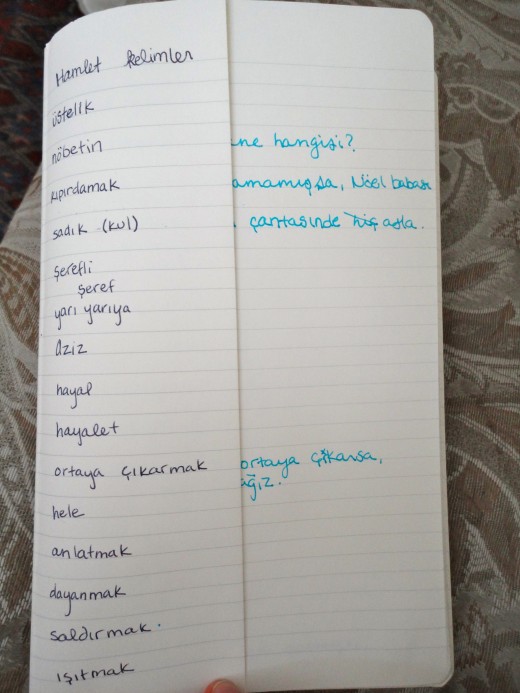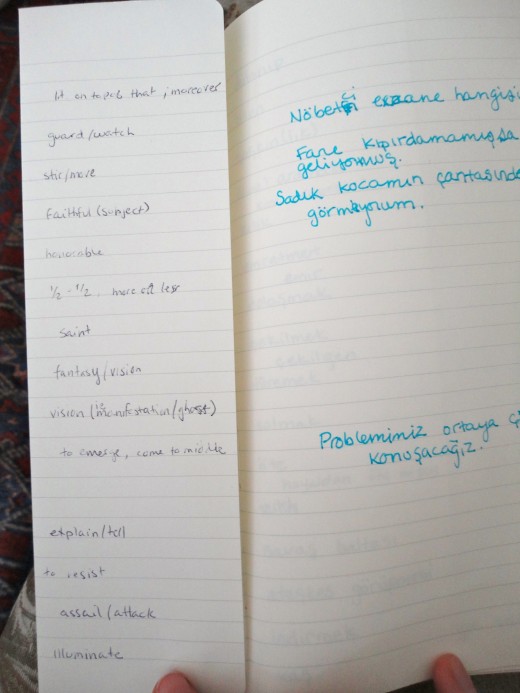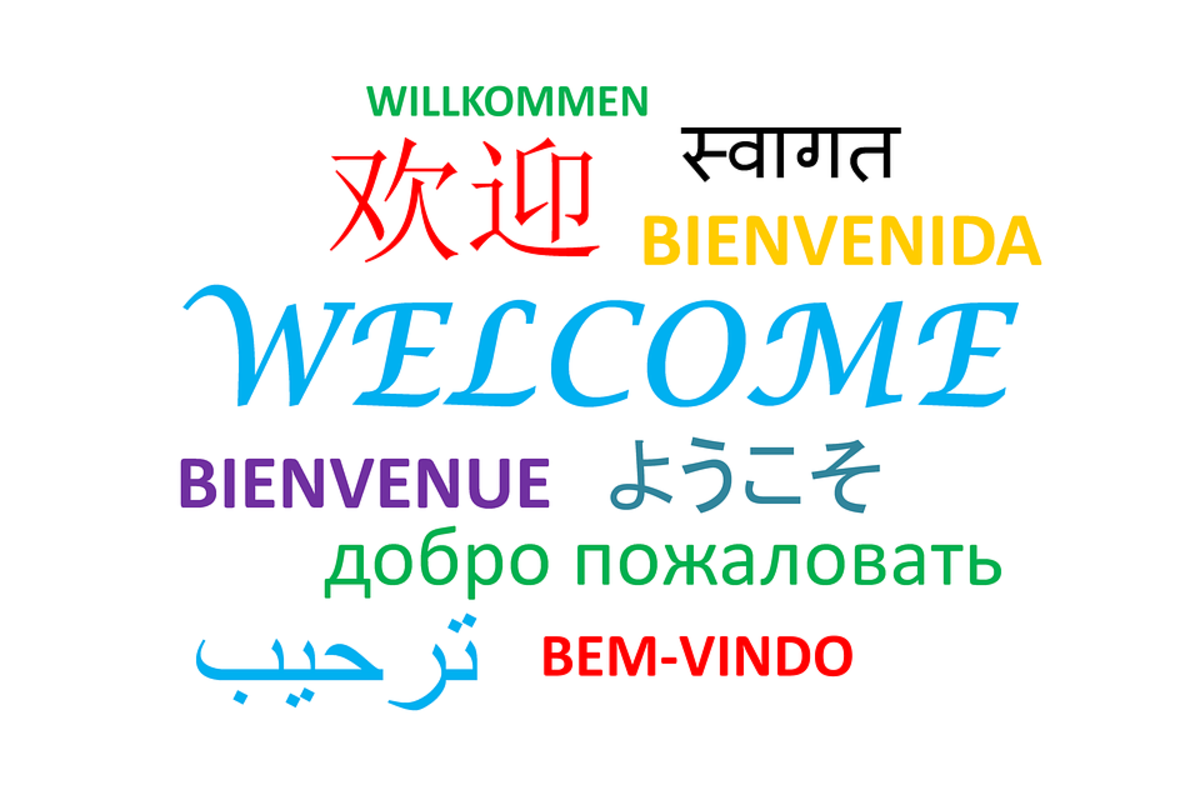Expat Ninja: How to Learn a New Language ASAP and at Any Age

So You Want to Move Abroad.
Bully for you! It's a grand adventure, to be sure (and, at the risk of sounding like I grew up on Sesame Street, a fantastic growing experience for folks of any age). So you've got your passport, some sturdy luggage, a job, and plane fare. All systems go? Just about...
Hands-down, the hardest part of settling in a foreign country is overcoming the language barrier. Despite the global prevalence of English, any expat who wants to function like an independent adult will have to master a certain amount of the local language. And unfortunately, because of the global prevalence of English, in all likelihood you've been hired to teach it and everyone around you will speak at least a little of it, and the first person you're entirely unable to communicate with will be the guy who delivers potable water or the police officer from whom you need to get your residence permit.
Yeah, you're screwed. So if you don't want to get scary diseases from the tap water, or if you want to be able to navigate the Kafkaesque bureaucracy of Foreign Land, you're going to need to learn some of the language. "Functional proficiency" is the goal, and while it's not easy, it's also probably not as hard as you think. Whether you're a green college graduate or a somewhat more mature individual, your brain is absolutely prepared to acquire the language necessary for your survival. No excuses.
And so: this article provides tips and suggestions for self-study proven to help individuals of any linguistic aptitude to acquire functional proficiency in a new language.
You're welcome.
Sample Notebook Organization


Step One: Go Whole Hog
When you know where you're headed, see if there are classes available in your area. Regardless of the answer, also check itunes for relevant podcasts or ipad applications. Some languages are well represented there, like Chinese, Japanese, French, Spanish, and German. Unfortunately Turkish is decidedly under-represented, if any technologically-inclined readers need a project!
Do as much preparation as possible, if only to get into the habit of sitting down with language acquisition on your mind everysingleday.
Some practices I found particularly effective:
- Labeling EVERYTHING - bookcases, lamps, rugs, the contents of your refrigerator. Four years later, my scissors still have 'makas' labels taped to them.
- Choosing and then religiously watching a television show. Ideally, it should be something you can stand to watch, but it should also be slightly soapy. By which I mean that you should be able to more or less follow the action without understanding most of what's said. Unless you're trying to learn Spanish, this is obviously something you can only do once you've touched down.
- Start doing translations of anything that interests you as soon as you have the basic grammar down. Try to go both ways: translate your favorite poem or children's story into the language you want to learn, and translate something else into English. This is the best way to learn how to express yourself the way you're used to. Write summaries of what you read (or the television drama) in your new language.
- Keep a notebook of the unfamiliar words you come across in your day-to-day life or in your translations. I've included a photograph of the most effective way I've come up with to organize these lists.
- Try not to be self-conscious while speaking. It helps to keep in mind that most of the people you interact with are speaking in a second language and most make quite a few mistakes - but you can always understand what they mean, and you certainly don't think any the less of them. Assume they would feel the same about you, take a deep breath, and go for it. Practice is, I am sad to say, the only way you'll ever feel comfortable communicating in your new language. So go to bars, talk to your neighbors, your waiters, that dude who sits around on the steps all day.
- Find a pop group or folk singer and buy a few albums to listen to in the morning, when you're making dinner, etc. I highlight these genres because artists thus classified tend to sing in such a way that you can follow along - not super fast, usually in reasonably complete sentences, and often clearly enough for you to hear subtleties of intonation. For Turkish, I have found that folk singer Bülent Ortaçgıl and the pop group 'Hepsi' are excellent. 'Hepsi' is even great gym music, so there you go!
"Sometimes," he told her, leaning forward over the table, speaking without realizing how it would sound, "I begin with songs. They provide a sort of skeleton grammar for me to flesh out. Songs of longing for future tense, songs of regret for past tense, songs of love for the present."
-The Sparrow, by Mary Doria Russell
Picking Up Grammar
While you're papering your apartment, neighborhood, and place of employment with little yellow sticky notes, you should also be learning to navigate the basic tenses. Your translation work will help with this immensely, but here's another secret I learned from Mary Doria Russell, via Father Sandoz: the best way to learn a grammar is to listen to a variety of songs. The relevant quote is to the right, if you want to read it in full.
At bottom, however, you will have to practice "shifting your brain" into the other language. Maybe your goal isn't necessarily to dream in the other language, but if you want to learn it well, you'll have to set your sights a little closer to that level. The goal is to NOT be constantly translating from your native language into your new language when you want to speak - and having to do the whole process in reverse when someone speaks to you. It's inconvenient, impractical, and ultimately bound to leave you stranded on a plateau of Basic.
How do you avoid this unpleasantness? When you learn new words, try to define them in your new language - try to think, as much as possible, in your new language. English language learners are at a huge advantage in this respect simply because of the vast resources available - personally, I insist that my intermediate and advanced students use Merriam-Webster's Learner's Dictionary, which supplies simple definitions of new words in English, complete with sample sentences. How I wish I could find this in Turkish! But we are stubborn and muddle on. Huff huff, and balderdash!
What's Your Area of Expertise?
If you enjoy writing, and have a skill or specialist knowledge that you would like to share, then maybe you would like to write about it here, on Hubpages?
• Free to join
• Great on-line community
• Money making opportunities
• Publish easily using simple, capsule-based format
Click here to sign up today!
Some Additional Resources
- iTunes store, for free (or cheap) language learning podcasts and apps for your Tech Of Choice.
- BBC Languages: a selection of resources for English-speakers wishing to learn another language. Features French, Spanish, Greek, Chinese, Portuguese, German and "other".
- SIL International: an excellent collection of resources for independent language learners and teachers.
- International song lyrics: "the most comprehensive lyrics site on the net!"
- http://www.lyrics.net/: Allows you to translate the lyrics of English language songs into a variety of other languages. FUN.
- The International Lyrics Database: back from the dead!









